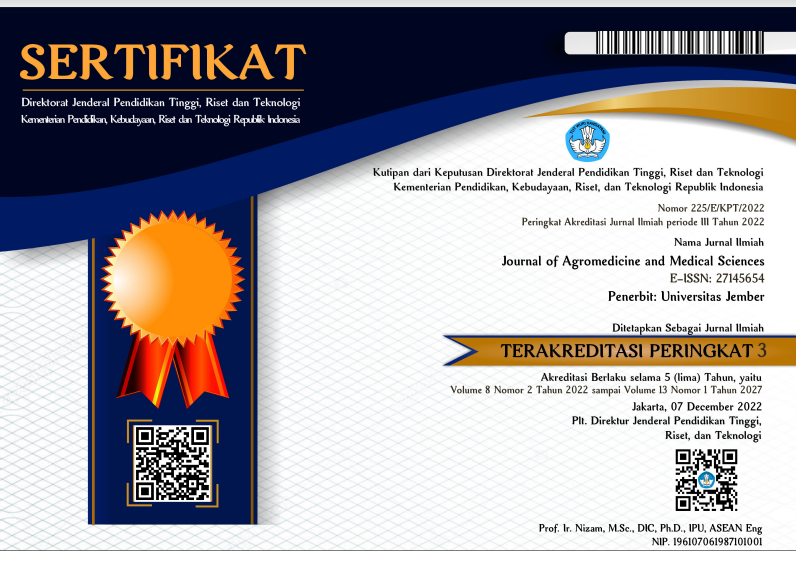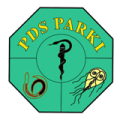Profiling and In Silico Study of Carica papaya Extract on Appetite Regulation
DOI:
https://doi.org/10.19184/ams.v10i1.43095Abstract
Carica papaya is one of the plants known to increase appetite. 15% papaya leaf solution can increase appetite, but if given in 20% solution there is a weight loss effect. Papaya leaves contain papain, carpaine and various other compounds. The mechanisms that affect appetite regulation involve ghrelin, leptin, ARC, IL-1β and NPY. This study aims to determine the compound profile contained in papaya leaf extract and its effect on appetite regulation that has been analyzed with in silico methods. The method of determining the profiling of papaya leaf extract compounds using UPLC / MS and analyzed using watermaslinx, in silico analysis used molecular docking methods using PatchDock. The results of this study are the most compounds found in papaya leaf extract (Carica papaya) is carpaine with a concentration of 50.33%. then, carpaine compounds will be analyzed using in silico method to see its effect on appetite regulation. The results of in silico analysis showed that carpaine has a strong potential to interact with NPY, IL-1 Beta, and Leptin, forming a stable complex. The strongest bond occurs between carpaine and leptin, so it can be predicted that papaya leaf extract, especially carpaine, causes a feeling of fullness.
Keywords: Carpaine; leptin, ghrelin, molecular docking, appetite






















